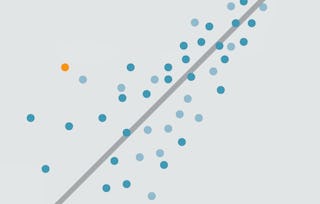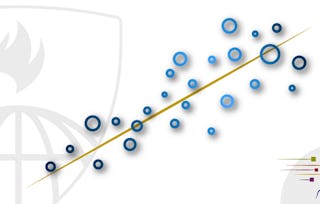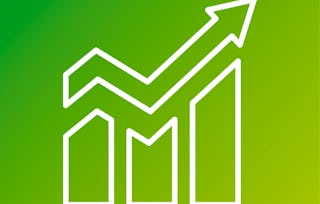This course provides learners with a first look at the world of statistical modeling. It begins with a high-level overview of different philosophies on the question of 'what is a statistical model' and introduces learners to the core ideas of traditional statistical inference and reasoning. Learners will get their first look at the ever-popular t-test and delve further into linear regression. They will also learn how to fit and interpret regression models for a continuous outcome with multiple predictors. All concepts taught in this course will be covered with multiple modalities: slide-based lectures, guided coding practice with the instructor, and independent but structured exercises.

Linear Regression Modeling for Health Data

Linear Regression Modeling for Health Data
This course is part of Data Science for Health Research Specialization


Instructors: Philip S. Boonstra
Included with
Recommended experience
What you'll learn
Become knowledgeable about the concept of statistical modeling and the basics of statistical inference
Recognize, fit, and interpret a simple linear regression model
Develop intuition to fit and interpret a multiple regression model
Skills you'll gain
Details to know

Add to your LinkedIn profile
9 assignments
See how employees at top companies are mastering in-demand skills

Build your subject-matter expertise
- Learn new concepts from industry experts
- Gain a foundational understanding of a subject or tool
- Develop job-relevant skills with hands-on projects
- Earn a shareable career certificate

There are 3 modules in this course
This module gives you a first look at the world of statistical modeling. It begins with a high-level overview of different philosophies on the question of 'what is a statistical model' and introduces you to the core ideas of traditional statistical inference and reasoning. At the end of the module, you will have an introductory understanding of important terms such as 'sample-to-population' (STOP) principle, sampling variation, and measures of statistical uncertainty. You will also get your first look at the ever popular t-test.
What's included
11 videos7 readings3 assignments3 discussion prompts
This module takes you beyond t-test into linear regression. By the end of the module, you will understand how linear regression is a generalization of the t-test.
What's included
13 videos6 readings4 assignments2 discussion prompts
A key reason that linear regression is so powerful is that it allows to adjust for multiple predictors at the same time. In Module 3, you will learn how to fit regression models for multiple predictors. You will see how to interpret the resulting model and how to use it to answer different questions about your data.
What's included
8 videos3 readings2 assignments1 discussion prompt
Earn a career certificate
Add this credential to your LinkedIn profile, resume, or CV. Share it on social media and in your performance review.
Offered by
Explore more from Data Analysis
 Status: Free Trial
Status: Free TrialDuke University
 Status: Free Trial
Status: Free TrialJohns Hopkins University
 Status: Preview
Status: PreviewSimplilearn
 Status: Free Trial
Status: Free TrialImperial College London
Why people choose Coursera for their career

Felipe M.

Jennifer J.

Larry W.

Chaitanya A.

Open new doors with Coursera Plus
Unlimited access to 10,000+ world-class courses, hands-on projects, and job-ready certificate programs - all included in your subscription
Advance your career with an online degree
Earn a degree from world-class universities - 100% online
Join over 3,400 global companies that choose Coursera for Business
Upskill your employees to excel in the digital economy
Frequently asked questions
To access the course materials, assignments and to earn a Certificate, you will need to purchase the Certificate experience when you enroll in a course. You can try a Free Trial instead, or apply for Financial Aid. The course may offer 'Full Course, No Certificate' instead. This option lets you see all course materials, submit required assessments, and get a final grade. This also means that you will not be able to purchase a Certificate experience.
When you enroll in the course, you get access to all of the courses in the Specialization, and you earn a certificate when you complete the work. Your electronic Certificate will be added to your Accomplishments page - from there, you can print your Certificate or add it to your LinkedIn profile.
Yes. In select learning programs, you can apply for financial aid or a scholarship if you can’t afford the enrollment fee. If fin aid or scholarship is available for your learning program selection, you’ll find a link to apply on the description page.
More questions
Financial aid available,

